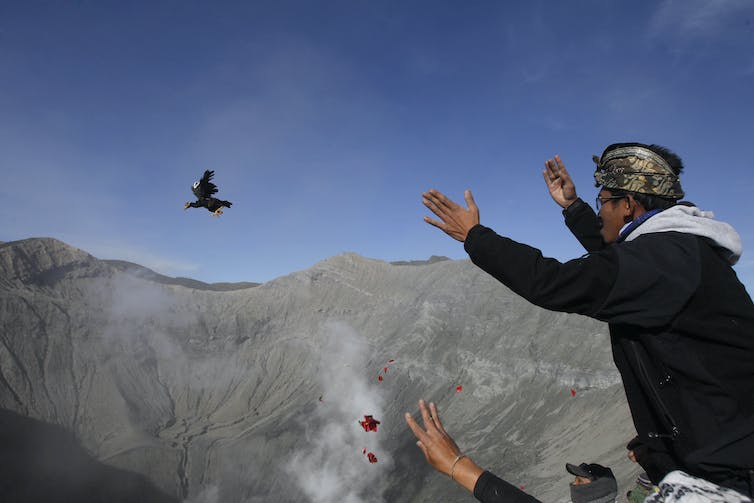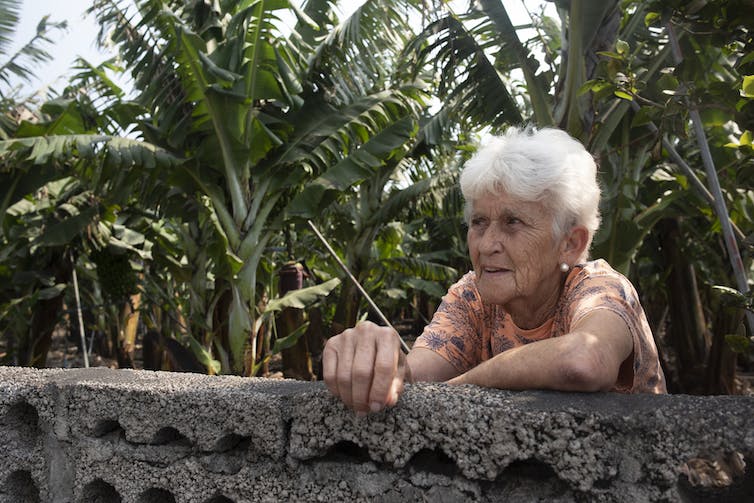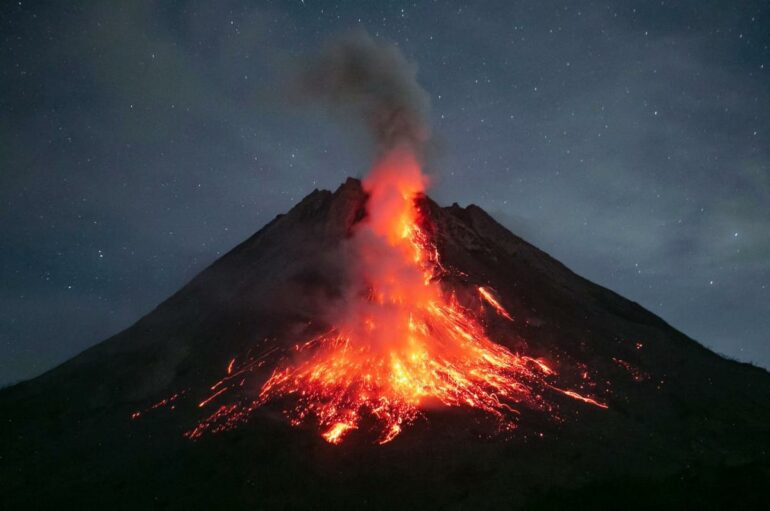The thought of living near an active volcano probably sounds like an unimaginable risk to you – and rightly so. An active volcano is never safe and can turn a forested hillside into a lifeless wasteland in a matter of seconds. From molten avalanches of rock to razor-sharp lung-shredding ash, volcanoes threaten people’s lives and property.
Yet 500 million people worldwide live and work under the shadow of active volcanoes. As a geologist who’s studied many volcanoes over the years, I’ve come to realize it’s naïve to ask, “Why don’t these people just move to less risky places?”
Their motivations range widely. For some, strong cultural beliefs and traditions keep them in place. For others, volcanoes offer significant economic opportunity. For the most vulnerable, poverty traps them in dangerous locations.
Whatever the reason, many people’s lives and welfare are so intimately linked with a volcano, moving elsewhere is unthinkable.
Centers of identity
Numerous cultures and Indigenous peoples revere volcanoes as places of worship, ritual and tradition that are celebrated for their power over fertility, life and sustenance.
For a number of religious traditions, Mount Fuji in Japan is a place where ancestral spirits congregate. It has been a symbolic and sacred site of pilgrimage for centuries. Every summer, thousands of people ascend through the clouds to reach the summit.

A worshipper throws a chicken into the crater of Mount Bromo as an offering to the gods during the Yadnya Kasada festival in Probolinggo, East Java, Indonesia.
AP Photo/Trisnadi
For the Tenggerese people on Java, Mount Bromo is a deeply sacred site – the abode of gods. Every year they hike up the volcano carrying agricultural products and livestock to be sacrificed during the Yadnya Kasada festival. Pilgrims gather at the rim to express gratitude and seek blessings with prayer, chanting and sacred offerings.
In Ecuador, the Quechua people follow a religion that combines pre-Columbian and Catholic elements. Local people see the Tungurahua volcano as a familiar but unpredictable matriarch who can offer support and guidance.
Economic opportunity
The land surrounding volcanoes often offers significant economic opportunity.
Volcanic soils are among the most fertile in the world. They contain essential minerals and nutrients such as iron, magnesium, calcium, potassium, phosphorus and trace elements that are essential for plant growth. They also have high organic matter content, good pH balance, high porosity and strong water retention, making them ideal for agriculture.

The owner of a small banana farm watches as ash comes from the Cumbre Vieja volcano in the Canary island of La Palma, Spain, on Oct. 6, 2021.
Marcos Moreno/Anadolu Agency via Getty Images
In addition, volcanic terrains often create unique microclimates that are ideal for growing high-value crops…



